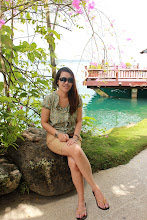Canada's Financial Information
Financial Information of Canada
As continuation to my post Relocating in Canada and Facts about
Canada. Here is another relocating tips;Financial Information.
Financial information - How to open a bank account in Canada, information about Canada's currency, how to get insurance.
Currency
Canadian currency is based on dollars and cents. U.S. currency is usually accepted throughout Canada, but to avoid exchange problems it is preferable to use Canadian dollars. Paper currency comes in denominations of five (blue), 10 (purple), 20 (green) and 50 (red). The brown C$100.00 bill and larger bills are less common and can be difficult to change.
Canadian coins come in denominations of one (penny), five (nickel), 10 (dime) and 25 (quarter) cent pieces. There are also the gold C$1.00 (loonie) and C$2.00 (toonie) pieces. The gold-coloured loonie features the loon, a common Canadian water bird, while the two-toned toonie is decorate with a polar bear.
Banking
Banking hours in Canada are 10 am to 3 pm Monday through Friday, with extended hours in some locations. The ATM cards of certain U.S. banks connect directly with Canadian banks (Chase and Royal banks) via the PLUS system. Canada also uses checking and savings accounts.
Savings accounts
Savings accounts offer interest on money you keep in them. Most people with small savings, who don't want to commit to keeping it in the bank, open a general savings account. For those who have more than a few thousand dollars, or can commit to keeping it in the bank for two or more years, money markets or even CDs are a good idea. These will pay you more interest on your money. You can also ask an investment specialist about low-risk stocks and bonds.
Checking accounts
A checking account allows you to write checks against funds you have in the bank. Carrying cash can also be dangerous and it doesn't leave as much evidence behind to prove your payment if there's a dispute. Another benefit is that you can deposit your paycheck or any other checks or cash directly into your account as opposed to going to someone else's bank or a check cashing outfit (which charges a fee) to get your cash.
It's best to change money at companies such as Thomas Cook, which specialises in international transactions. If you can't find a money exchange office or booth, try a bank. American Express and Thomas Cook are the best traveler’s cheques to have, and you should make sure they are either in US or Canadian dollar denominations.
Checks and Credit Cards
Credit cards are widely accepted, especially Visa, MasterCard and American Express. ABMs (ATMs) are common throughout Canada, with the Interact system the quickest and most convenient way to replenish cash.
Most US credit cards are honored in Canada, but those coming from the US should check with their home bank before leaving.
Insurance
Canadian hospital and medical services are excellent. We recommend that visitors to Canada obtain traveler’s health insurance before leaving their country because health insurance plans often do not extend coverage for services received outside the country of residence. Visitors taking prescription medicine should bring a copy of the prescription, in case it needs to be renewed by a doctor in Canada.
Upon arrival
One of the most important things you need to do as soon as you arrive in Canada is to apply for a health insurance card. All members of your family, even newborn babies, must have their own card. You can get an application form from the provincial ministry of health office, any doctor's office, a hospital or a pharmacy. If necessary, the immigrant-serving organization in your area can help you fill out the form. To apply for a health card, you will need your birth certificate or Confirmation of Permanent Residence (IMM 5292) and passport. The Permanent Resident Card may also be presented. In most provinces, you will receive coverage as soon as you apply.
Taxes
The Goods and Services Tax (GST) is 7 per cent across the country and most provinces have a provincial tax rate as well. Income tax rates vary from province to province.
Canadian residents are required to pay tax on any income world-wide. Retirement pension funds are not taxed. If you are considered a non-resident you are still required to pay tax on your Canadian income. You are a resident if you have spent 183 days or more in a calendar year in Canada, regardless of where the permanent residence is.
Income tax ranges from 16% of total income to a maximum of 53.19%.Income tax is also payable on a provincial level.
Hope this financial information will be helpful on your plan in Relocating to Canada.



0 comments:
Post a Comment